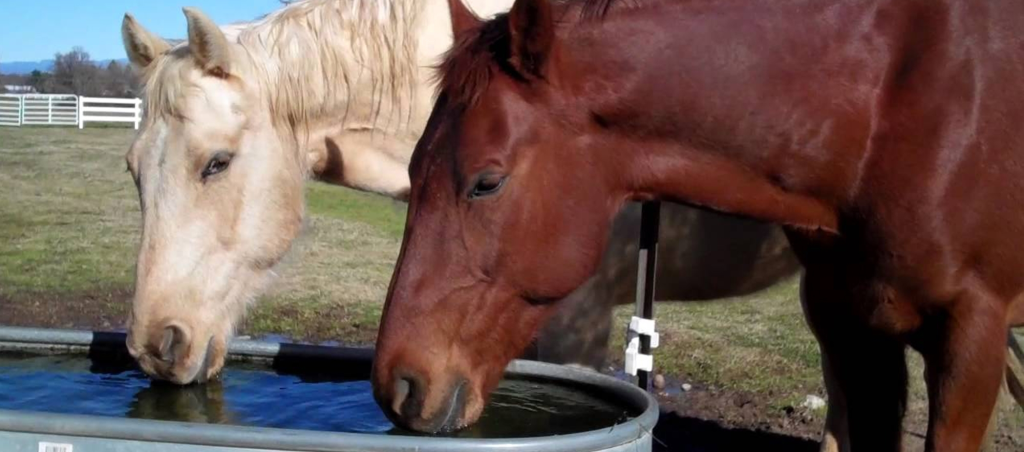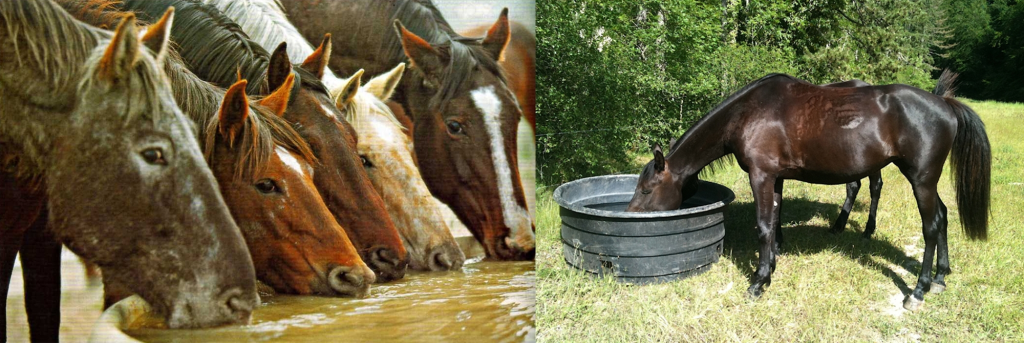
The most important requirement for a horse’s physical effort is maintaining an appropriate water balance in the body.
In addition to drinking water, horses also obtain water from feed and from metabolic water, which is formed through the oxidation of proteins, carbohydrates, and fats in the organism.
The main routes of water loss in the body are: urine, feces, sweat, and respiration. When animals do not have access to water, the amount lost through feces decreases. Diarrhea, however, causes significant water loss and can lead to severe dehydration.
The amount of water required for a resting horse kept in a cool environment is about 15 to 20 liters per day.
However, this requirement may vary depending mainly on the following factors:
- Water content in feed consumed – several calculations indicate that horses require approximately 2.5 to 5 liters of water per kg of dry matter consumed.
- Temperature and humidity – higher temperatures increase the need for water.
- Activity level – moderate work can increase water requirements by 60–80% above resting levels. Heavy work may raise it up to 120%.
- Lactation – mares in the last third of pregnancy drink 8–10% more than non-pregnant mares.

(Photo: Reproduction/Nel Paese Dei Cavalli)
As a practical measure, ensure that the horse has access to good quality water at all times. The only exception to this rule of free-choice access is that, after exercise, the horse should be cooled down before being allowed to drink freely. Cold water given to a hot and tired horse can cause colic and “water founder.” However, during exercise, it is acceptable for the horse to drink frequently in moderate amounts. Large volumes should be avoided because of the large difference between the osmotic pressure of water and that of the blood. After prolonged exercise, the horse should rest or graze for about 60 minutes before drinking water. Only after water should it receive grain.
The first effect of inadequate water intake is a decrease in feed consumption. This is followed by a reduction in physical activity and work quality. Horses tend to drink less water in the following situations:
- Limited availability;
- Difficult-to-access water sources;
- Frozen or very hot water;
- Poor quality water (dirty, salty, etc.).



